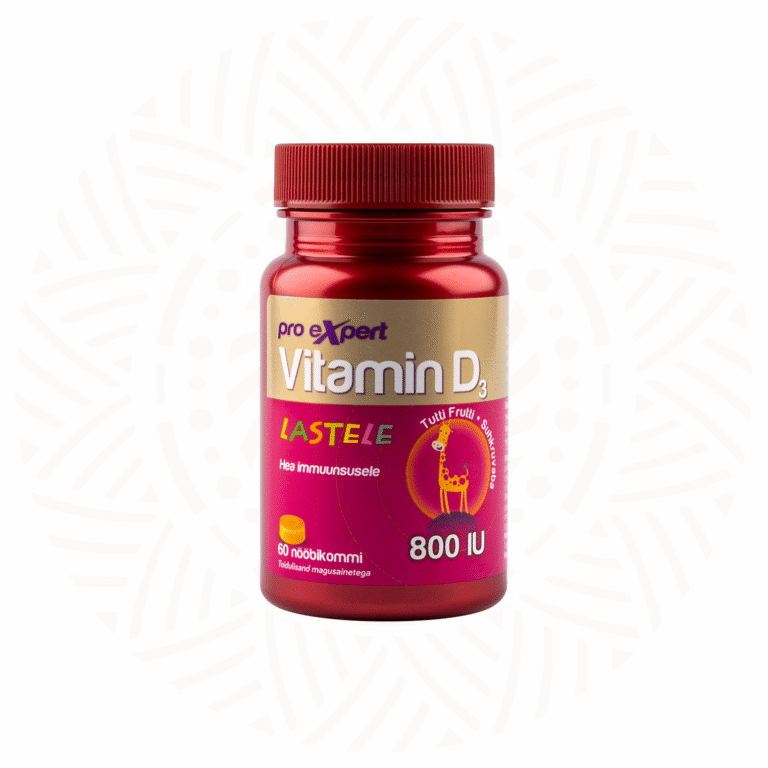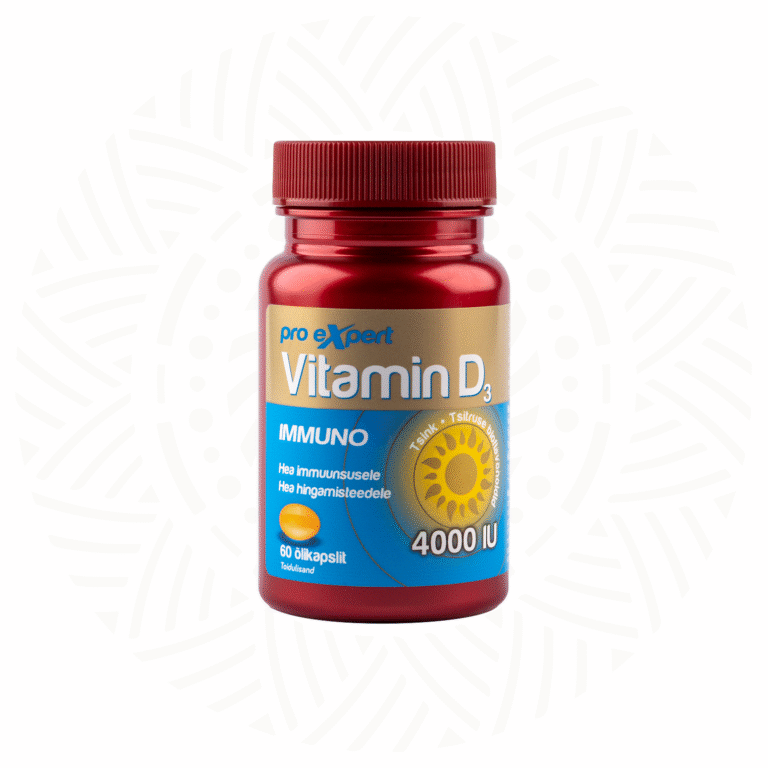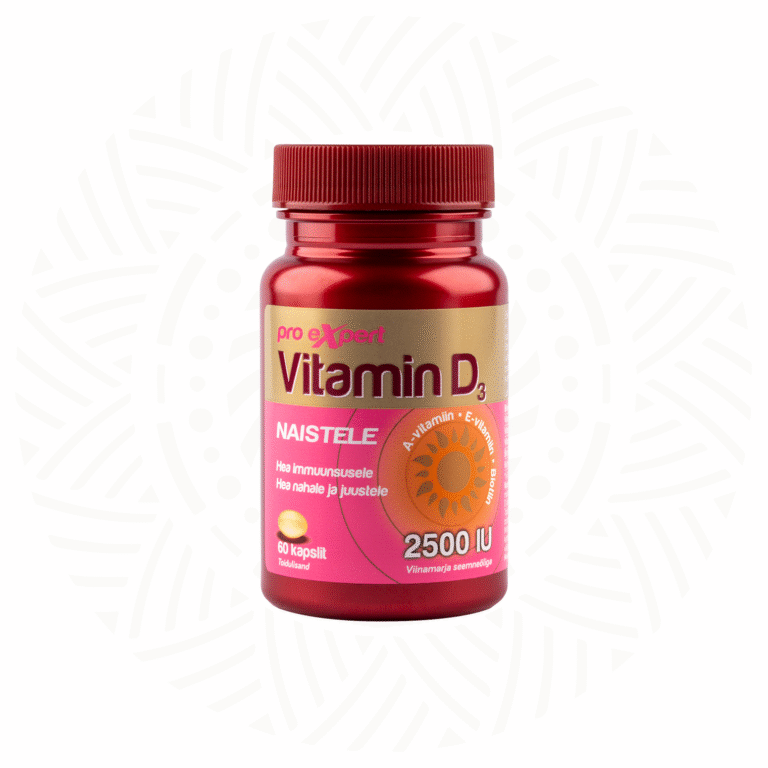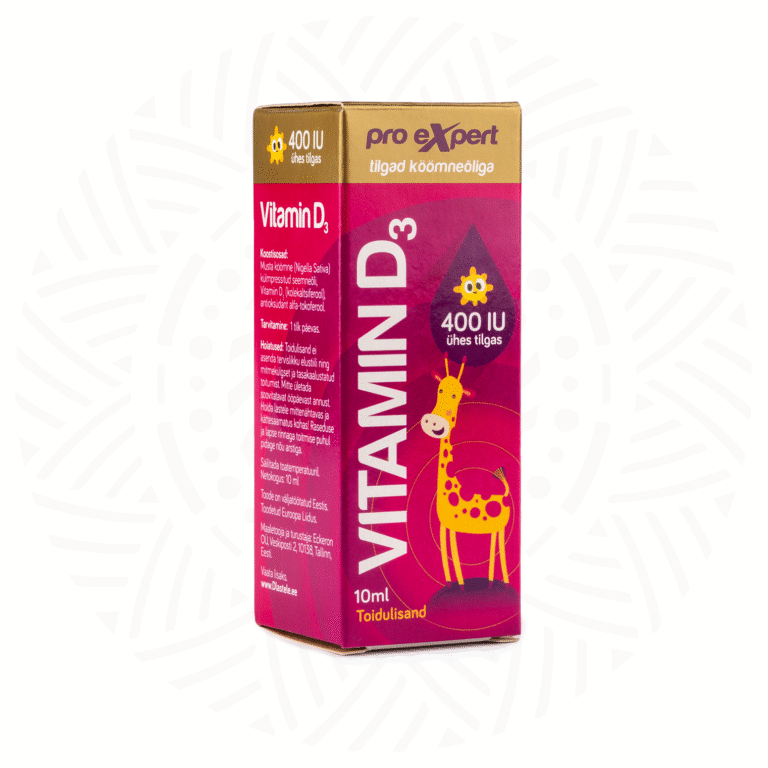Did you know that one small but powerful vitamin can be the key to good health? Yes, it’s vitamin D! It is essential to keep our body healthy from birth and to prevent serious health problems in older age. So, if you want to stay healthy, vitamin D should be the first on your supplement list.
Next, we’ll share practical tips on how to choose the best vitamin D that ensures good absorption and beneficial effects on health!
What should be a healthy vitamin D level?
The normal vitamin D level, or healthy range in the blood, is 75 – 125 nmol/l. It is important to maintain this level throughout the year.
A very low vitamin D level is 25 nmol/l or lower, which is considered critical deficiency. At this level, several important vitamin D functions are significantly impaired—such as supporting bone metabolism and ensuring the effective functioning of the immune system.
Vitamin D toxicity is considered when the level exceeds 250 nmol/l, and excessive intake is considered at levels above 375 nmol/l.
What are safe vitamin D doses?
In Estonia, there are recommendations for vitamin D intake based on age groups. The recommended prophylactic daily vitamin D doses are as follows:
- Children under 1 year old: 400 IU, with a maximum of 1000 IU
- Children 1-3 years old: 600 IU, with a maximum of 2500 IU
- Children 4-8 years old: 600 IU, with a maximum of 3000 IU
- Children from 9 years to adults up to 70 years: 600 IU, with a maximum of 4000 IU
- Seniors and indoor adults: 1200 IU, with a maximum of 4000 IU
It is worth noting that these are not therapeutic doses but the recommended daily maintenance doses.
Which form of vitamin D should you choose?
Did you know that vitamin D is one of the most important vitamins from birth? There are many options—drops, gummies, tablets, sprays, and oil capsules. But which one is the best? The answer is quite simple! Since vitamin D is a fat-soluble vitamin, it is absorbed best in oil form. So, if you want to ensure maximum absorption, choose vitamin D in the form of oil capsules or oil drops.
If you prefer to take vitamin D in tablet form, to achieve better absorption, take the vitamin D tablet with a substantial meal. The fats in food can increase the absorption of vitamin D by up to 50%.
How to choose vitamin D for babies?
The development and growth of a baby are very important for parents, and their health depends largely on proper nutrition and receiving the necessary nutrients. One essential nutrient that babies need is vitamin D. To ensure normal development and growth and avoid deficiencies, it is recommended to give your baby at least 400 IU and a maximum of 1000 IU of vitamin D daily, regardless of their diet.
The best way to give vitamin D to a baby is in oil drops, as it is easy and convenient to use. However, it’s important to be attentive and choose the right product, as vitamin D supplements often use olive or coconut oil, which can cause allergies and painful gas for babies. Therefore, it is recommended to opt for cold-pressed black seed oil, which is gentle on the baby’s stomach and effective for gas pains. It is also suitable for allergic children since it does not contain allergens.
It is also important to monitor the dosing of the drops. The daily dose can be in one or five drops. Therefore, it’s essential to follow the manufacturer’s recommendations and consider the child’s age. Correct vitamin D administration ensures the baby’s healthy development and helps avoid potential health issues later in life.
How to choose vitamin D for toddlers?
Choosing vitamin D for children can seem like a tricky task since there is a wide selection of products available in pharmacies. However, it’s actually important to focus on a few key aspects on the packaging, such as:
- dosing
- method of administration
- ingredients
First, you need to check the vitamin D dosage based on the child’s age. Children aged 1–3 years need a minimum of 600 IU and a maximum of 2500 IU, and children aged 4–8 years need 600 IU and a maximum of 3000 IU of vitamin D. It’s advisable to consult a pediatrician about the appropriate dosage.
Secondly, if your child can’t swallow capsules yet and doesn’t have teeth, the best choice is vitamin D in oil drop form. Oil drops are an easy and convenient way to administer daily vitamin D. If your child has teeth, vitamin D gummies are a convenient and tasty alternative for daily vitamin D intake. It’s recommended to choose sugar-free vitamin D gummies to protect dental health.
Thirdly, if your child is older, you can try offering vitamin D pearls, which are available in much larger doses. It’s important to know that as your child grows, their daily vitamin D needs increase.
How to choose vitamin D to stay radiant and healthy as a woman?
Imagine that your everyday life is like driving on a highway—full of rushing, stress, and obstacles. But do you know what kind of damage this actually does to your body? Few hours of sleep and constant stress speed up the aging process, weaken the immune system, and promote the development of serious diseases in later life—such as osteoporosis, dementia, cardiovascular diseases, and more.
Fortunately, there’s a weapon against these warning signs: daily intake of vitamin D and essential antioxidants – zinc, vitamin C, vitamin A, and vitamin E.
When you enter the pharmacy, it may initially seem like navigating through the shelves is just a tedious task. But don’t rush your decision! It’s in the pharmacy where you might discover real treasures. For example, if you need vitamin D, choose a product that contains useful antioxidants. Antioxidants work effectively at the cellular level, preventing damage, fighting premature aging, and reducing the risk of serious diseases.
So, take your time and choose the right product. As they say – good health starts from the inside and reflects on the outside!
How to choose vitamin D if you are overweight?
Obesity is a significant risk factor that increases the risk of serious diseases like diabetes, heart disease, and cancer. Studies have shown that vitamin D deficiency is closely linked to the development of these diseases, particularly among overweight individuals. Therefore, it’s crucial to take adequate doses of vitamin D in the case of excess weight to avoid serious health issues.
Since fat tissue holds onto vitamin D, overweight and obese individuals usually need up to three times larger doses of vitamin D compared to those with normal weight—at least 4000 IU per day. So, vitamin D in oil form is the best choice, as it ensures maximum absorption.
Did you know that obesity doesn’t just affect your figure but also your immune system? This might be surprising, but excess body weight is often accompanied by a weaker immune system, which significantly increases the risk of illness. One way to support your health is by taking vitamin D and zinc. Combining vitamin D with zinc helps reduce the risk of viral infections and speeds up recovery.
How to choose vitamin D if you are a senior?
As we age, the immune system loses its ability to fight diseases, and a healthy lifestyle alone is not enough to support it. For this reason, it is especially important to choose not only a quality vitamin D oil capsule but also other immune-boosting vitamins and minerals like zinc, vitamin B12, vitamin E, and Omega-3 fatty acids.
Zinc is a versatile mineral that not only affects the efficient functioning of the immune system but also our sense of taste and smell. Unfortunately, zinc deficiency is common among older adults and comes with increased risks of contracting viral diseases and later complications. If you’re often sick and recovery takes longer, choose vitamin D combined with zinc.
About 40% of seniors suffer from a vitamin B12 deficiency. Vitamin B12 is crucial for supporting memory. If you feel that you’re forgetting things and can’t remember, choose vitamin D combined with B12, which supports memory functions.
As we age, the immune system weakens, and the risk of heart disease increases. But don’t worry, there are measures to help support both your immune system and heart health – vitamin D with fish oil. Omega-3 fatty acids found in fish oil are essential for preventing cardiovascular diseases, and their intake is especially important as we get older.
Choose vitamin D wisely and stay healthy!








